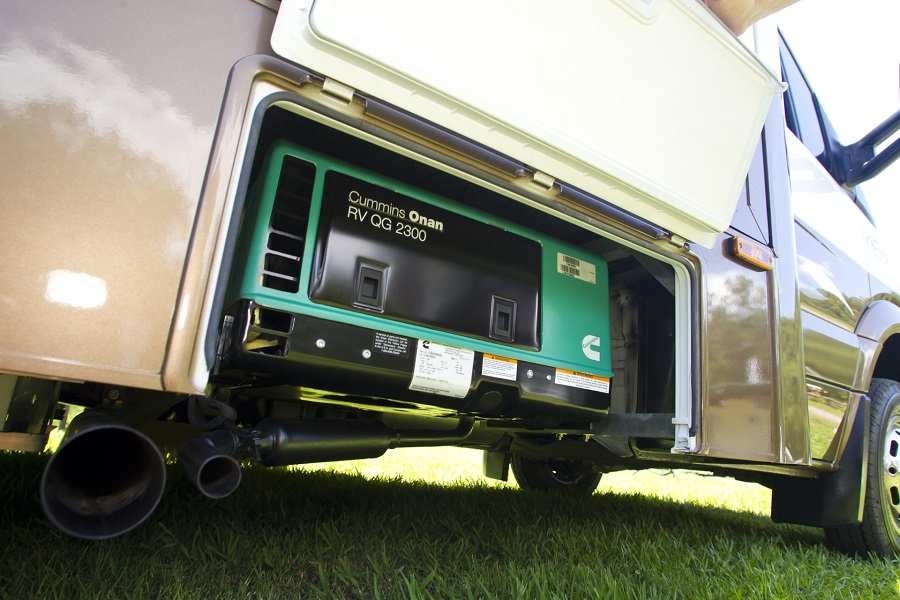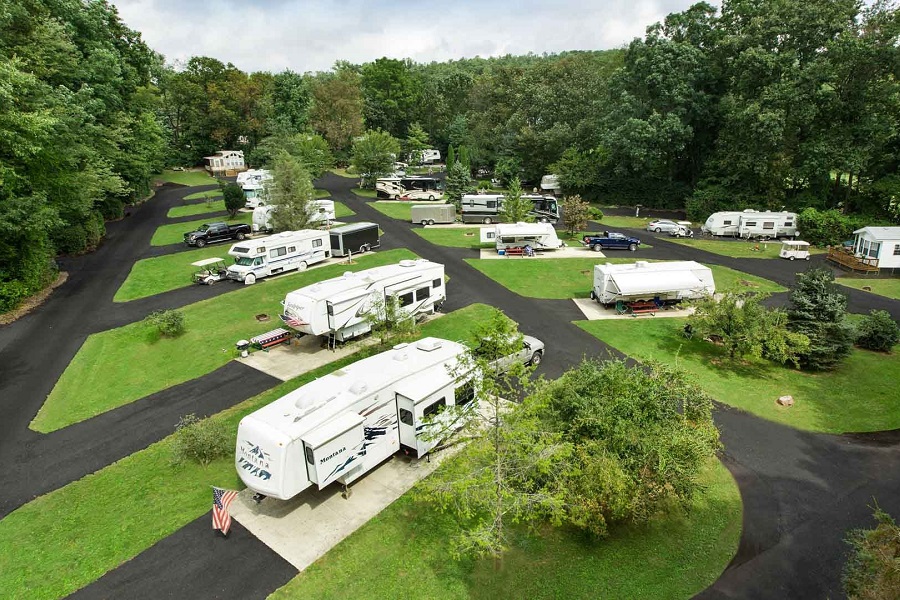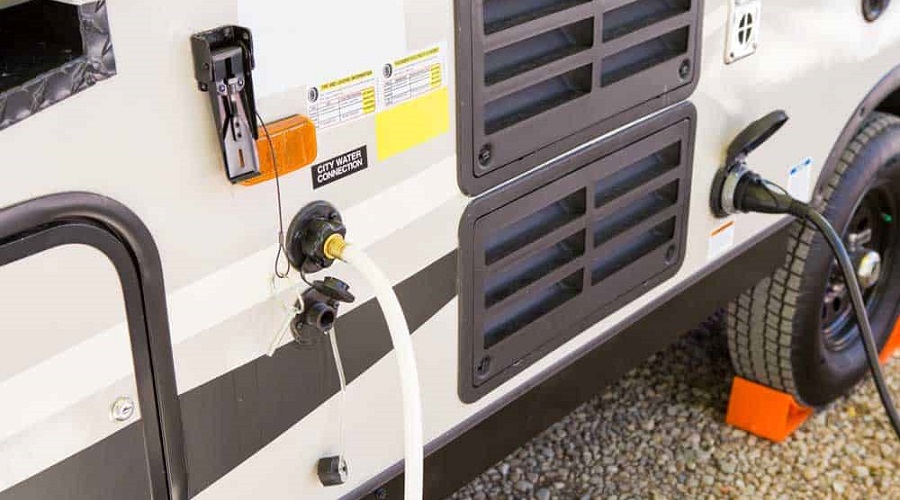Any good RV owner has a plan in place to supply their vehicle with enough power to live comfortably, and then some. Whether you like to go fully off the grid with boondocking or prefer to stay at powered sites now and then, you’ll appreciate a good boost of electricity for your RV any way you can get it.
Solar power is not just one of the most popular ways to power up homes these days, but motor-homes as well, and if you’re looking for a renewable and free way to stay connected, this is it. It’s not just as simple as laying out some panels and hoping for the best though, so you’ve got a bit to learn.
So, how much solar power do I need for my RV? To calculate your solar needs, you’ll first have to establish your daily energy output by adding up the wattages and energy use of your commonly used RV appliances. Secondly, you’ll need a solar power setup consisting of panels, a converter, and a battery that will allow you to put the energy to use.
Having the backup of solar power always in your corner gives you peace of mind as an RV owner. This guide will show you the ins and outs of figuring out how to set up solar for your RV and exactly what you need to live comfortably, so you can have the satisfaction of a renewable and reliable energy source when you’re on the road.
Wattages of Common RV Appliances

Understanding the power consumption of an RV is important, not just for solar purposes, but for responsible ownership. A typical RV might use around 20kWh a day, with a lower rate during average weather, but higher numbers when it’s a hotter or cooler season.
An RV can be as basic or advanced as those who live in it, and depending on the type of traveler you are, your appliance and electronic usage could look very different. However, to get an idea of solar requirements in your RV, you should know the common wattages of appliances that people use in them.
- Ceiling fan – 100 watts
- Electric stove – 2000 watts
- Microwave oven – 1000 watts
- Fridge and freezer – 700 watts
- Toaster – 900 watts
- Television – 500 watts
If you’re unsure about a certain appliance, you can usually check its label for a more accurate reading. Most electronic manufacturers put the wattage of their products on a sticker placed underneath it, so you can get a better idea of how much energy it consumes.
The goal here is to add up what you plan on using and give yourself around 20% remainder for wiggle room, calculating how much solar energy you’ll be getting as well as other power sources. This will allow the circuit breaker to work as needed without overloading, so you won’t miss out on any of your needed electronics just because of some poor planning.
How To Use Your RV

All RV owners are different, and some might prefer to live a minimally electronic lifestyle on the road, where others will want all of the mod-cons still on hand. How you use your RV will determine what your solar needs are as well, and you might have to be willing to make changes here and there.
A standard RV will rely on a few key appliances a day to run comfortably, including a microwave oven, television, fan, and fridge. Just these four, without considering any lights or heat pumps, will require around 2200 watts of energy, so your solar panels have to be able to provide this, or at least some of it.
To scale back on energy use, you need to remain vigilant with everything that’s drawing power. This means unplugging items that aren’t in use and only running certain ones for a small amount of time each day. If you have a larger rig that’s capable of more amps, this won’t be as much of a concern, but it should still be factored in.
Where you’re camping will also factor in, and if solar is your only energy source, you’ll need to be careful with how you use electronics. However, for those connected to mains power or relying on their vehicle to charge up the battery as they drive, having a huge solar setup won’t be as important.
Are Normal Appliances Designed for RVs?

Standard household appliances aren’t ideal for use inside caravans and RVs because they lack the features that make them suitable. These household versions draw more power, are larger, and have added details that aren’t required when traveling in an RV.
When you’re shopping for your motor-home, it’s best to choose appliances that were designed for this very purpose. They’ll be compact enough to fit inside and without any of the unnecessary bells and whistles, with the biggest benefit being the minimal amount of power they draw.
If you’re unable to shop for RV rated electronics, choose basic models instead. Low capacity and compact microwaves or double slice toasters get the job done, just on a smaller scale, and they won’t drain the precious energy that your solar panels have worked so hard to provide.
How Much Solar Does Your RV Need?

With an idea of the appliances that your RV and your daily energy output, you can do some quick calculations to determine how much your solar needs are. If you’ve established that your appliances make up around 150 amp-hours per day, you’ll need a battery or power pack that provides more than this.
The solar panels required are what gives energy to the battery, and these panels commonly come in sizes between 100 to 300 watts. The watt rating is its maximum efficiency and would only be realistic if it was a perfectly sunny day and in the right climate, so you should always assume less.
For every 100 watts of solar panels, you can expect to create about 30 amps of power, with some offering more or less. Keep in mind that you can only charge them efficiently while the sun is bright and shining, which is around six hours a day in most locations. Calculate how many panels you’ll need to meet your power needs, and you should get a good idea.
Common RV Solar Setups

A solar setup on an RV or caravan can look very different and it depends on how much you plan on using and what other power sources you rely on as to what you’ll need. An RV might come ‘solar-ready’ which means it already has the wires in place for you to install panels, and others will need to be wired up so you can connect panels.
In both of these scenarios, you’ll need enough space on the roof of the RV for solar panels, and using the calculations we did earlier to determine wattages and amps, this could be a varying amount. In some cases, you might choose to mount external solar panels, but having them installed on the roof of the RV is more efficient.
The solar panels will then work at converting the sunlight into direct current (DC) electricity which is stored in a battery, either externally or in the RV. Otherwise, having an inverter installed as well means it can transform the DC to alternating current (AC) which is fed directly to the power outlets inside your vehicle.
Related Questions
A key factor in having a comfortable and successful road trip with your RV is making sure you have the right power supply, whatever that may look like. Whether it’s solar power or a generator, there’s a lot to consider, so we’ve answered some FAQs about RVs and electricity that can point you in the right direction.
Do I Need Solar for My RV?
While solar panels provide an energy-efficient and renewable power source, they might not be required for all types of RVs. A Class B vehicle can usually charge itself up just through driving, and it might be more costly to have solar panels installed. If you plan on boondocking or staying for longer periods without access to electricity though, solar is always a smart idea.
Can I Run an Air Conditioner With My RV Solar Setup?
In most cases, it’s not feasible to run an air conditioner in an RV just by using solar power. A standard solar setup with 600 watts of panels on the roof will need around a full day of optimum sunlight just to power up one hour of air conditioning, so it’s not the best method of providing electricity for this purpose.
Resources:



